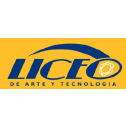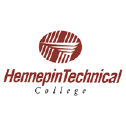What do they do?
Test the safety of structures, vehicles, or vessels using x-ray, ultrasound, fiber optic or related equipment.
Also known as:
Industrial Radiographer, NDE Technician (Non-Destructive Evaluation Technician), NDT Coordinator (Non-Destructive Testing Coordinator), NDT Inspector (Non-Destructing Testing Inspector), NDT Specialist (Non-Destructive Testing Specialist), NDT Technical Specialist (Non-Destructive Testing Technical Specialist), NDT Technician (Non-Destructive Testing Technician)
-
1.1%
Change
Ranks #45 in job growth rate170Job Openings
Ranks #16 in net job growth
Looking for colleges that offer a specific major? Use the College Match Tool to find your best-matched schools and discover your estimated Net Price!
- Some college, no degree (30%)
- High school diploma equivalent (24%)
- Associate's degree (20%)
- Bachelor's degree (18%)
- Less than high school diploma (4%)
- Master's degree (3%)
- Doctorate or Professional Degree (1%)
People in this career often have these skills:
- Reading Comprehension - Understanding written sentences and paragraphs in work-related documents.
- Quality Control Analysis - Conducting tests and inspections of products, services, or processes to evaluate quality or performance.
- Active Listening - Giving full attention to what other people are saying, taking time to understand the points being made, asking questions as appropriate, and not interrupting at inappropriate times.
- Critical Thinking - Using logic and reasoning to identify the strengths and weaknesses of alternative solutions, conclusions, or approaches to problems.
- Monitoring - Monitoring/Assessing performance of yourself, other individuals, or organizations to make improvements or take corrective action.
People in this career often know a lot about:
- Engineering and Technology - Knowledge of the practical application of engineering science and technology. This includes applying principles, techniques, procedures, and equipment to the design and production of various goods and services.
- Mathematics - Knowledge of arithmetic, algebra, geometry, calculus, statistics, and their applications.
- English Language - Knowledge of the structure and content of the English language including the meaning and spelling of words, rules of composition, and grammar.
- Physics - Knowledge and prediction of physical principles, laws, their interrelationships, and applications to understanding fluid, material, and atmospheric dynamics, and mechanical, electrical, atomic and sub-atomic structures and processes.
- Education and Training - Knowledge of principles and methods for curriculum and training design, teaching and instruction for individuals and groups, and the measurement of training effects.
- Computers and Electronics - Knowledge of circuit boards, processors, chips, electronic equipment, and computer hardware and software, including applications and programming.
- Customer and Personal Service - Knowledge of principles and processes for providing customer and personal services. This includes customer needs assessment, meeting quality standards for services, and evaluation of customer satisfaction.
- Production and Processing - Knowledge of raw materials, production processes, quality control, costs, and other techniques for maximizing the effective manufacture and distribution of goods.
- Mechanical - Knowledge of machines and tools, including their designs, uses, repair, and maintenance.
People in this career often have talent in:
- Problem Sensitivity - The ability to tell when something is wrong or is likely to go wrong. It does not involve solving the problem, only recognizing that there is a problem.
- Written Comprehension - The ability to read and understand information and ideas presented in writing.
- Deductive Reasoning - The ability to apply general rules to specific problems to produce answers that make sense.
- Near Vision - The ability to see details at close range (within a few feet of the observer).
- Oral Comprehension - The ability to listen to and understand information and ideas presented through spoken words and sentences.
- Inductive Reasoning - The ability to combine pieces of information to form general rules or conclusions (includes finding a relationship among seemingly unrelated events).
- Information Ordering - The ability to arrange things or actions in a certain order or pattern according to a specific rule or set of rules (e.g., patterns of numbers, letters, words, pictures, mathematical operations).
- Oral Expression - The ability to communicate information and ideas in speaking so others will understand.
- Far Vision - The ability to see details at a distance.
- Written Expression - The ability to communicate information and ideas in writing so others will understand.
People in this career often do these activities:
- Interpret design or operational test results.
- Test characteristics of materials or structures.
- Measure physical or chemical properties of materials or objects.
- Document design or operational test results.
- Select tools, equipment, or technologies for use in operations or projects.
- Calibrate scientific or technical equipment.
- Operate industrial equipment.
- Inspect finished products to locate flaws.
- Inspect equipment or systems.
- Supervise engineering or other technical personnel.
- Test performance of electrical, electronic, mechanical, or integrated systems or equipment.
- Devise research or testing protocols.
This page includes data from:

 Occupation statistics: USDOL U.S. Bureau of Labor Statistics Occupational Employment Statistics
Occupation statistics: USDOL U.S. Bureau of Labor Statistics Occupational Employment Statistics





